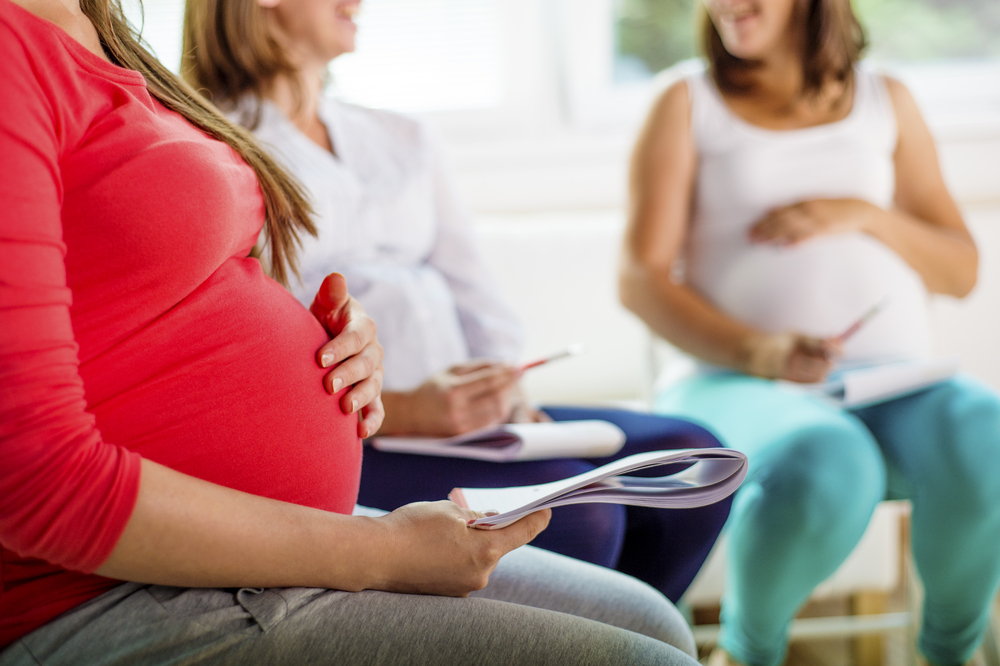
Imagine you're going into a public speaking commitment, or a big business meeting, or the first day at a new job—and you're totally unprepared. Can you imagine anything more stressful or doomed to failure? That's why, for any of those scenarios, you'd spend considerable time and effort preparing, and even powwowing with trusted friends for advice and support, so that you had the tools for a successful start.
Well, it turns out that parenting isn't unlike those other stressful events—a bit of preparation goes a long way toward positive results. And the benefits aren't just for the new parents either—they can actually help babies' birth outcomes as well!
According to the results of a new study published in Maternal and Child Health Journal, just a brief series of parenting classes helped first-time moms and dads support each other to ease the transition into the new phase of life, reduce stress, mitigate depression and anxiety, chart a course for better parenting—and even deliver healthier babies.
Research professor Mark Feinberg at the Bennett Pierce Prevention Research Center for the Promotion of Human Development at Penn State developed a series of classes for expecting parents called Family Foundations. In the study, nearly 400 couples who were first-time expecting parents were randomly assigned either to the courses—14 in all, both before and after birth—or to a control group, to whom info was simply mailed to their homes. The study showed it was the classes that delivered big benefits.
"We never thought that a class series meant to help the parents manage the stresses of parenthood would have an impact on birth outcomes as well," Feinberg said in comments published by Penn State. "We found that the program buffered the negative influence of financial stress and depression on infant birth weight. We also found consistent evidence across all three risk indicators measured—financial stress, depression and anxiety—that duration of both mother and infant stay in the hospital was reduced for intervention couples compared to controls at higher levels of risk."
In addition to the obvious benefits to the all members of the family, he went on to say that these "preventive strategies may lead to early savings in health care costs.
"This demonstrates the power of helping parents cooperate and support each other across the transition to parenthood," he said. "Better support and lower levels of conflict between parents have now been shown to benefit parents' mental health, family relationships and children's well-being from birth through entry into school."
Sign up for our pregnancy newsletter to keep up with the latest pregnancy news.
Alesandra Dubin is a mom to one-year-old boy-girl twins. She's also a Los Angeles-based writer and the founder of lifestyle blog Homebody in Motion. Follow her on Facebook, Instagram, Google and Twitter.

